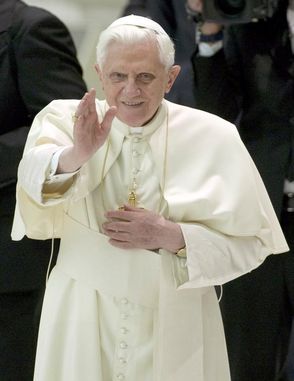Vatican's Empty Gesture Is Betrayal of Abused Children
By Eamonn McCann
What emerges most starkly from the report by emissaries of the Holy See into child sex-abuse in Ireland is that there has been no change in the hierarchy of hypocrisy. The report, released on Tuesday, was compiled from information gathered by seven separate teams of clerics sent by Benedict XVI to study and draw lessons from the Church's handling of the scandal. The source and scale of the operation had encouraged expectations that the exercise would go some way towards tracing the problem to its roots - towards the role not just of the Church in Ireland, but of the Holy See, the global governance of the Church. But the document published at a press conference in Maynooth did the opposite. It is a sustained effort to exculpate the Holy See, while pronouncing on the inadequacies of Irish bishops and religious superiors. Inadequate they have undoubtedly been. But they took their lead from the top, specifically from the man who had a greater hand than any other in the orchestration of the cover-up of the crime-spree. The second paragraph of the findings defines the purpose of the exercise as having been to 'assist the local Church on her path of renewal'. The 'sinful and criminal acts' of some Irish clerics had engendered in Benedict a 'sense of dismay and betrayal' Now the good shepherd was intent on bringing the sinners back into the fold. For bare-faced dishonesty, this takes some beating. The role of the Vatican in the scandal was made clear in last year's 400-page report into abuse in the Diocese of Cloyne. Judge Yvonne Murphy highlighted the relevance to the Cloyne events of a 'strictly confidential' letter sent to all Irish dioceses in 1997 by papal nuncio Archbishop Luciano Storero expressing "serious reservations of both a moral and canonical nature" about a proposal from the Irish bishops in a framework document to make the reporting of child sex abuse allegations to the civil authorities mandatory. The proposal "appear[ed] contrary to canonical discipline," declared Storero, warning that reporting an abuse allegation to gardai, or health authorities, could invalidate any disciplinary action by the Church against the priest concerned. The document was "not an official document of the episcopal conference, but a study document," declared Sterero, and, therefore, lacked "recognitio". It was against this background that Bishop John Magee and Monsignor Dennis O'Callaghan - the man charged with responsibility for child-protection in the diocese - had "positively lied" and "deliberately misled" the civil authorities and had created contradictory accounts of allegations of abuse - a true one for the Vatican, a false one for consumption by state agencies. This led Taoiseach Enda Kenny to tell the Dail that the Cloyne report had "exposed an attempt by the Holy See to frustrate an inquiry into a sovereign, democratic republic . . . The rape and torture of children were downplayed, or 'managed,' to uphold the primacy of the institution." The behaviour of the Vatican had heaped "humiliation and betrayal" on raped children. And yet, just eight months later, here we have the Holy See's representatives affecting distress at the way the Irish Church had "betrayed" Pope Benedict. If the scandals in Ireland can be put down to specific errors and inadequacies on the part of Irish bishops and religious superiors, what is to be made of the similar scandals currently afflicting the Church in the US, Canada, Belgium, Germany, Switzerland, Britain, Austria, Tanzania, Australia, South Africa, Norway, Poland, Slovenia, Sweden, the Philippines, Croatia, France, New Zealand, the Netherlands, Italy, Malta, Spain, Brazil, Chile, Mexico, Peru and Argentina? The Catholic Church is a rigidly hierarchical global organisation, with a uniquely centralised system of governance. Its leader purports to speak for the Church throughout the world with the authority of God himself. Every diocese on earth is required to report to the Vatican at five-yearly intervals. For 24 years before his elevation to the papacy in 2005, Benedict, as Cardinal Ratzinger, headed the body responsible for maintaining orthodoxy and obedience across all dioceses, the Congregation for the Doctrine of the Faith - once known as the Holy Office of the Inquisition. Now his representatives chastise the Irish Church for failing the children raped and tortured by members of his clergy. The findings of the apostolic visitation tell that victims of abuse who met the Vatican emissaries during their Irish visit "were assured of the particular closeness of the Holy Father". That must have made them feel safe.
|
.
Any original material on these pages is copyright © BishopAccountability.org 2004. Reproduce freely with attribution.
